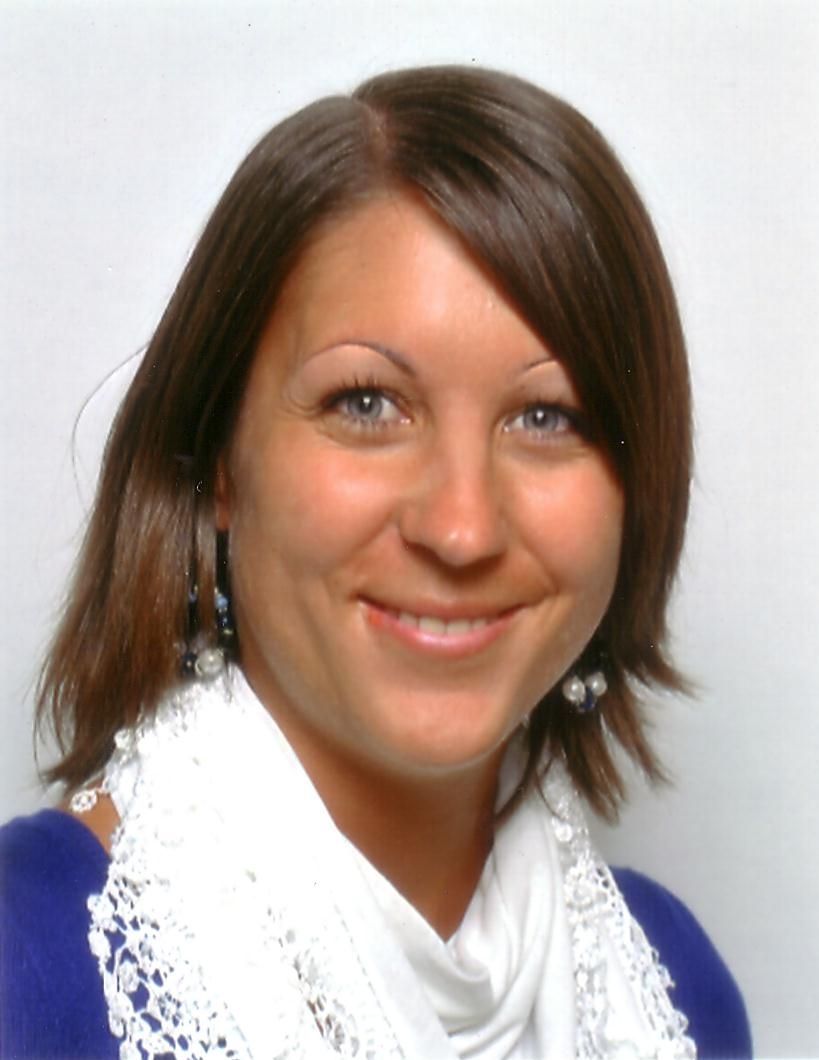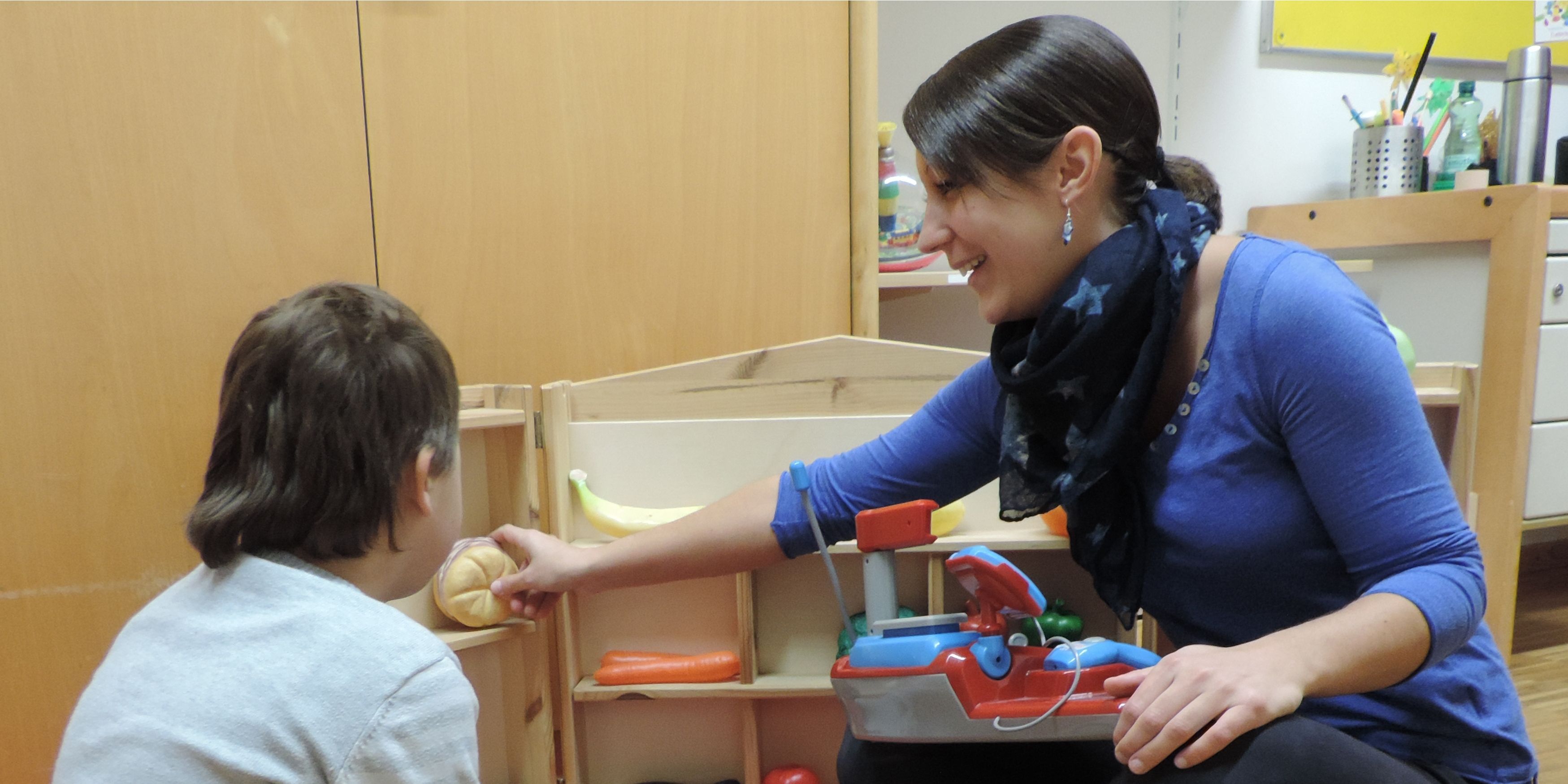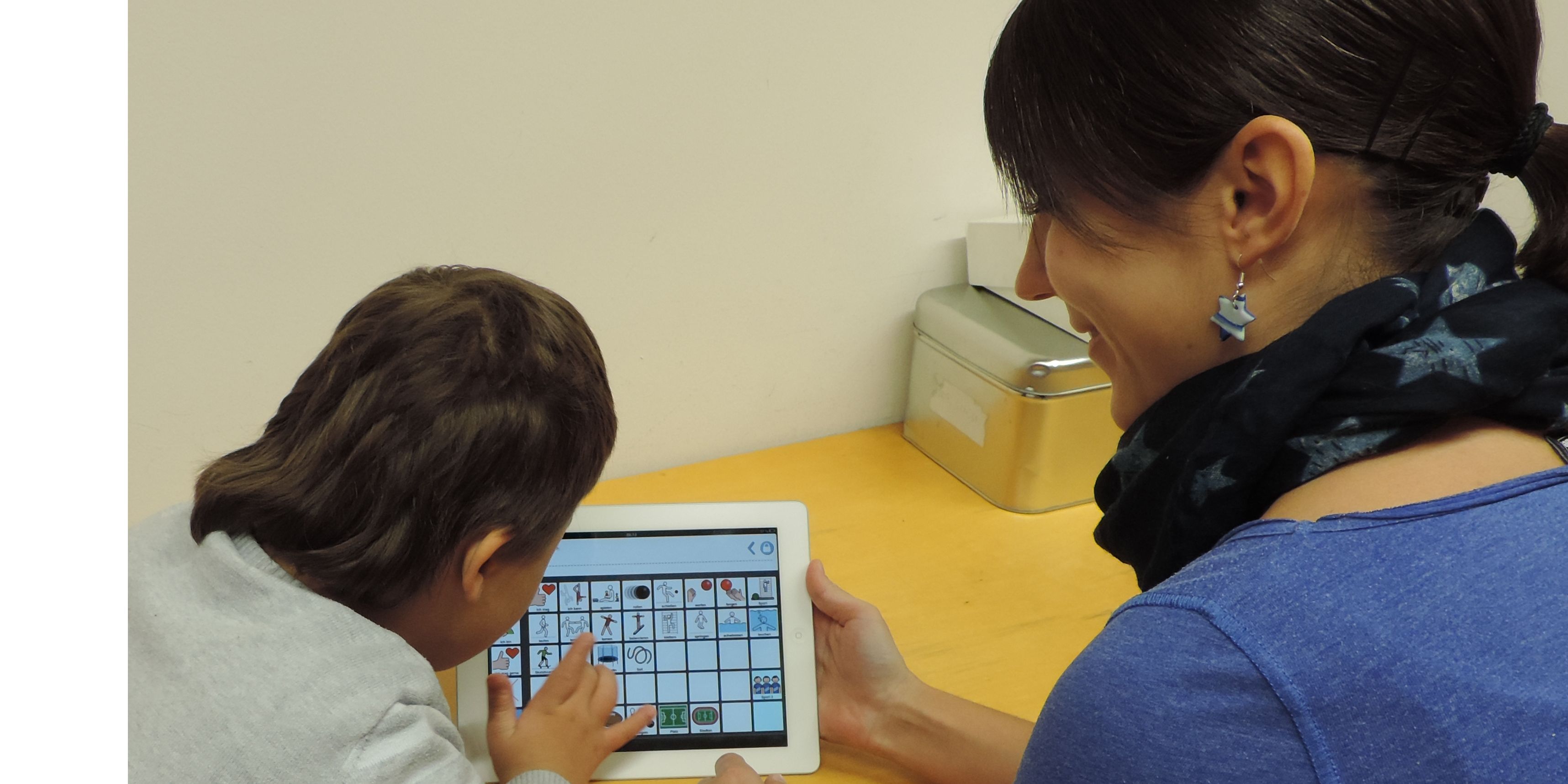Job description: Speech therapist, tutor
Company: Outpatient clinic at Mosaik GmbH Graz and Institute of Logopedics at FH JOANNEUM
I work in: Graz, Austria
I’ve worked here since: 2011: Outpatient clinic at Mosaik GmbH Graz and 2014: Institute of Logopedics at FH JOANNEUM
My contact
What I do:
Outpatient clinic at Mosaik GmbH Graz
- Diagnostics and treatment of disabled children and young people with language, speech, voice and swallowing disorders as well as providing advice and support to parents or caregivers of the children or young people
- Interdisciplinary collaboration with physiotherapists, hippotherapists, occupational therapists, musical therapists, psychologists and doctors
- Supervising interns
Logopedics Institute at FH JOANNEUM
- Responsible for various projects such as implementation of the new homepage
- Organisational and administrative tasks: coordination between the head of degree programme and the students
- Occasionally standing in for teaching staff
Why I love my job:
Outpatient clinic at Mosaik GmbH Graz
Every child who comes to me for speech therapy is different. This is both challenging and exciting because there are different personalities and speech therapy issues involved each time. My work is therefore very diverse and varied. I enjoy meeting each new child and finding out through play and chatting with their caregiver what the child can do, where there are difficulties and what are the focal points of the following treatment sessions. I am particularly interested in interdisciplinary collaboration where each discipline can learn something from the others and the child’s development is supported in the best way possible.
My work also gives me the opportunity to further my own personal development. In professional terms, this takes place through specific in-depth training. The increasing experience and challenges or difficulties encountered during everyday professional life also help to develop your treatment capabilities.
Institute of Logopedics at FH JOANNEUM
In terms of my work as a tutor, I like the fact that I have a range of tasks to deal with and the variety is forever presenting new challenges. I appreciate the contact with the lecturers and students which is completely different from that I have with the patients. This work also gives me the opportunity to acquire new theoretical expertise and to familiarise myself with new perspectives, for example through different projects.
What I don’t like so much about my job
- Lack of promotion opportunities
- Pay
Important skills in my job:
- Communication and team skills
- Enjoyment of working with different people
- Readiness to undertake personal development and develop treatment capabilities
My biggest accomplishment so far:
It is always a great experience when a child discovers language or communication, i.e. when a child realises that he/she can achieve something through the use of language. In general, it is always a good feeling when children spontaneously and clearly apply in everyday life what they have learned through their therapy.
One example: it is noted that a child at kindergarten is not speaking and quickly becomes aggressive in everyday life. He is referred to a speech therapist because he does not speak much. As part of my diagnosis, I establish that he only understand a few words – maximum one word in every sentence. Initially, he was unsure and became angry during his therapy when he didn’t understand something properly. Child: “Cars?” Speech therapist: “The cars are in the box”. The child does not fully understand the word ‘box’ and is unable to identify the box in my room. He reacts to the situation with uncertainty and rage. He cannot take on any more language support. During the course of the therapy, the child learns to take note of and react to my language support through play. My expressions are simple in formulation to ensure that he can understand them sufficiently. When the child realises that he has not sufficiently understood something I said, he looks at me and says “Help”. He therefore acknowledges his problem and can handle this by asking for help. His aggressive behaviour no longer emerges during the therapy.
How I found my current job:
Outpatient clinic at Mosaik GmbH Graz
I submitted an application to the institution where I completed my internship. This was followed by a written application and interview in person.
Institute of Logopedics at FH JOANNEUM
- I knew about it from my Logopedics studies at FH JOANNEUM and former work as a year group and course representative
- Written application
- Interview in person
What I learned for this job during my studies:
The link between theory and practice (for example internships and therapies in the teaching practice) was particularly helpful for my professional work. The regular supervision offered as part of the Logopedics course taught me how to handle professional and personal problems in everyday working life and how to distance myself from stressful situations and people.
Job prospects in my field:
There are not many institutions which offer speech therapy for disabled people. It is also a field which is not suitable for all speech therapists. I therefore think it is important that those interested complete an internship in the field and find out whether this field of work suits them. An internship is a way of getting to know the institution and improves your chances if you subsequently apply for a position there.
There are very few positions as speech therapy tutors at universities of applied sciences. If you have studied the course there, experienced the teaching for yourself and are familiar with the processes and requirements involved, you will already be known and this is an advantage for independent work.
I am:
- curious
- committed
- pragmatic
About my job:
In my work with children, I particularly enjoy the fact that the diagnostics and therapy are based on play and that the children enjoy the therapy-based games I direct and don’t notice that we are working on something that they cannot (yet) do. In my work with disabled children, the interdisciplinary collaboration is exciting because we often cannot work on speech therapy right away and have to lay the foundations first, such as adapting the sitting position to enable communication or intake of food.
In terms of my work as a tutor, I value the fact that this allows me to tackle another aspect of speech therapy. Expanding and developing my theory-based knowledge has a positive impact on my practical work.










